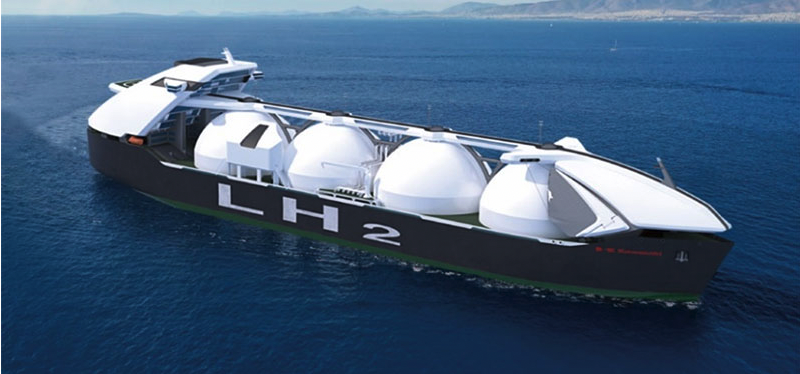Japan’s big three shippers have formed a partnership to establish a global liquefied hydrogen supply chain.
Kawasaki Kisen Kaisha, Mitsui O.S.K. Lines, and Nippon Yusen Kabushiki Kaisha have joined JSE Ocean, a subsidiary of Japan Suiso Energy, to establish the marine transport of LH2 at a commercial scale.
JSE remains the majority shareholder of JSE Ocean with 50.2% of stock, while the shipping companies hold 16.6% each, according to a news release.
JSE Ocean was established in January 2023 to research the marine transportation of LH2 by using a large-scale LH2 carrier. JSE and the three Japanese shipping companies with extensive knowledge and experience in the energy transport business will establish the marine transport of LH2 at a commercial scale through JSE Ocean.
The parties will collaborate to explore the safe and efficient operation of the world’s first large-scale LH2 carrier by 2024, as well as develop a viable marine transportation business scheme. Furthermore, the LH2 carrier will be powered by hydrogen, significantly reducing CO2 emissions during operation.
In August 2021, Japan’s New Energy and Industrial Technology Development Organisation (NEDO) allocated a grant from the Japanese government’s Green Innovation Fund to JSE, Iwatani Corporation and ENEOS Corporation for the “Liquefied Hydrogen Supply Chain Commercialization Demonstration Project”.
In this project, JSE will establish the world’s first large-scale hydrogen liquefaction and transportation technology, involving an initial 30,000 tons of hydrogen per year before upscaling. JSE will also demonstrate a comprehensive and reliable global liquefied hydrogen (LH2) supply chain, covering hydrogen production, liquefaction, export from Australia, marine transportation, and import.
As part of its Basic Hydrogen Strategy, Japan has committed to source 3 million tons/year of hydrogen by 2030, 12 million tons/year by 2040, and 20 million tons/year by 2050.






